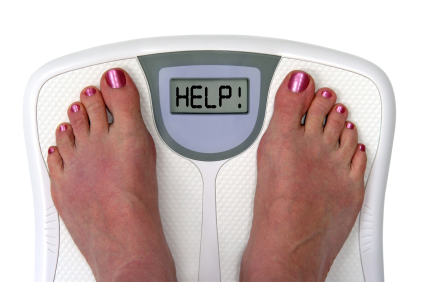Why Anxiety and Stress Might Be Causing Your Weight Gain
Anxiety and stress can cause a number of undesired effects in your body, including hypertension, depression and even an increased cancer risk. Stress can also contribute to weight gain, leading to an increased risk of stroke, heart disease, diabetes and other conditions. Unfortunately, stress is often taken for granted in today's high-paced, demanding world.

How Stress Causes Weight Gain
The ways that stress and anxiety can lead to weight gain are both physical and emotional. You might find that you simply overeat when you are under a great deal of stress. In addition, you might resort to eating comfort foods, which are often high calorie and high in fat. Some foods favored when you're feeling anxious, such as chocolate, even have chemicals in them that help temporarily counteract some of the side effects of stress and anxiety. These foods, however, provide calories, fat and excessive carbohydrates that often leads to long-term weight gain.
Since stress is often a result of an overly busy, frenetic lifestyles, you might also often skimp on healthy eating choices when you're stressed. You rush from one appointment to another, and instead of taking time to cook a healthy meal, you run to the nearest drive-through. Although fast food outlets continue to offer more and more healthy alternatives to the staple burger and fries, they still aren't the best dietary choice, since even the healthiest fast foods are often loaded with sodium.
Serotonin, Cortisol and Weight Gain
One reason you may find yourself binging on carbohydrates when you feel anxious or stressed is that carbohydrates temporarily raise serotonin levels. A powerful neurotransmitter, serotonin affects your emotions, alleviating anxiety and depression. The temporary lift you get from binging on carbohydrates, though, is often followed by a crash, and it certainly isn't worth the increased calories and resulting weight gain.
Another chemical that may be related to stress and weight gain is cortisol. Cortisol is a natural hormone that plays an important part in regulating the systems of the body. The body seems to release higher levels of cortisol during stressful periods, and some studies seem to indicate that these higher levels of cortisol in the system lead to increased abdominal fat.
Avoiding Stress-Related Weight Gain
The first step toward avoiding weight gain due to stress and anxiety is to be aware of your eating habits. If you tend to binge when you are under stress, take steps to reduce the amount of comfort food--usually high calorie snack food--that is available to you. Increasing exercise also helps reduce stress, and produces mood-lifting effects that can reduce your tendency to binge.
Since stress is connected to a variety of health issues, it is also a good idea to work on reducing your overall stress levels. Although it is not always easy or possible, removing major sources of stress from your life will go a long way toward reducing your chances of stress-related illness. Exercise also helps reduce anxiety and stress, as does meditation or other focused relaxation techniques.
-
Healthy Kitchen Staples to Start 2012
If you want to make over your health, refrigerator, and pantry, then m
-
7 Things You Need To Know About Losing Fat
There are a lot of people in this world who are overweight or obese. I
-
Have You Heard About The New Bootea Teatox Weight Loss Diet?
It seems that in recent months a new type of weight loss tea has
-
Want To Find Out If You Have Bad Posture And What That Means?
Have you ever noticed that guy at the gym who is bench-pressing the sm
-
You Can Attain Healthy Weight Loss by Awakening Early
Weight gain can be a very slow process.
-
High Fat Diets: Myths vs Facts
Myth: The USDA and all other major health organizations recommend a
- DON'T MISS
- Do Over-The-Counter Supplements For Reducing Your Weight Really Work
- How Can You Reduce the Risk of Diseases and Prevent Obesity?
- Internet Success Recipe
- To Taper off or Not Your Fatty Consumption!
- Breathing Problems Can Cause Weight Loss
- Fat Transfer Treatment in NYC
- Losing Weight By Eating Low Carbohydrate Foods
- Do You Know About Extra Body Fat
- Too Busy for Exercise? Find a Better Excuse
- 8 Major Reasons You Aren’t Shedding Pounds and How to Fix Them!




